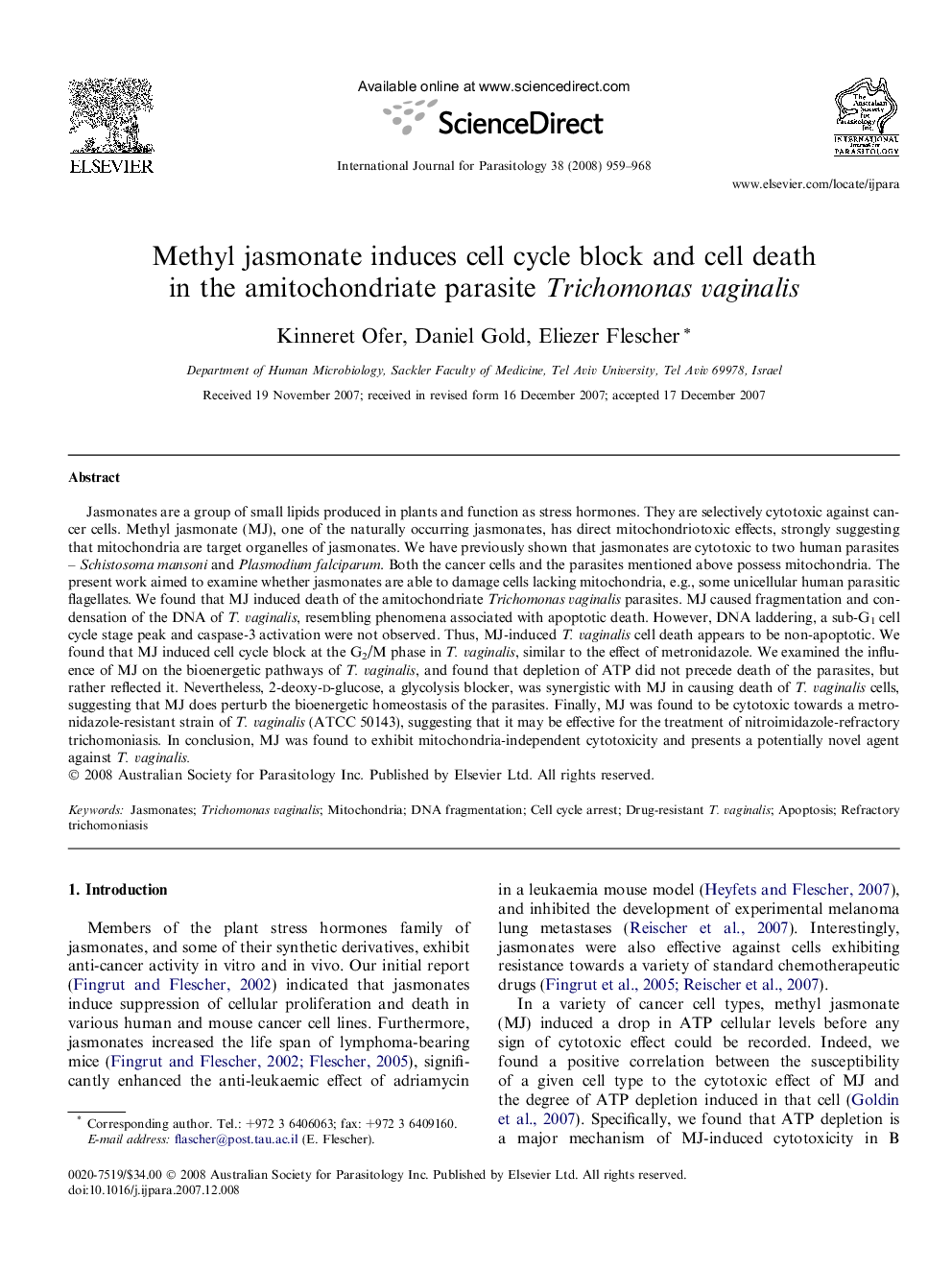| کد مقاله | کد نشریه | سال انتشار | مقاله انگلیسی | نسخه تمام متن |
|---|---|---|---|---|
| 8500312 | 1553734 | 2008 | 10 صفحه PDF | دانلود رایگان |
عنوان انگلیسی مقاله ISI
Methyl jasmonate induces cell cycle block and cell death in the amitochondriate parasite Trichomonas vaginalis
دانلود مقاله + سفارش ترجمه
دانلود مقاله ISI انگلیسی
رایگان برای ایرانیان
کلمات کلیدی
موضوعات مرتبط
علوم زیستی و بیوفناوری
ایمنی شناسی و میکروب شناسی
انگل شناسی
پیش نمایش صفحه اول مقاله

چکیده انگلیسی
Jasmonates are a group of small lipids produced in plants and function as stress hormones. They are selectively cytotoxic against cancer cells. Methyl jasmonate (MJ), one of the naturally occurring jasmonates, has direct mitochondriotoxic effects, strongly suggesting that mitochondria are target organelles of jasmonates. We have previously shown that jasmonates are cytotoxic to two human parasites - Schistosoma mansoni and Plasmodium falciparum. Both the cancer cells and the parasites mentioned above possess mitochondria. The present work aimed to examine whether jasmonates are able to damage cells lacking mitochondria, e.g., some unicellular human parasitic flagellates. We found that MJ induced death of the amitochondriate Trichomonas vaginalis parasites. MJ caused fragmentation and condensation of the DNA of T. vaginalis, resembling phenomena associated with apoptotic death. However, DNA laddering, a sub-G1 cell cycle stage peak and caspase-3 activation were not observed. Thus, MJ-induced T. vaginalis cell death appears to be non-apoptotic. We found that MJ induced cell cycle block at the G2/M phase in T. vaginalis, similar to the effect of metronidazole. We examined the influence of MJ on the bioenergetic pathways of T. vaginalis, and found that depletion of ATP did not precede death of the parasites, but rather reflected it. Nevertheless, 2-deoxy-d-glucose, a glycolysis blocker, was synergistic with MJ in causing death of T. vaginalis cells, suggesting that MJ does perturb the bioenergetic homeostasis of the parasites. Finally, MJ was found to be cytotoxic towards a metronidazole-resistant strain of T. vaginalis (ATCC 50143), suggesting that it may be effective for the treatment of nitroimidazole-refractory trichomoniasis. In conclusion, MJ was found to exhibit mitochondria-independent cytotoxicity and presents a potentially novel agent against T. vaginalis.
ناشر
Database: Elsevier - ScienceDirect (ساینس دایرکت)
Journal: International Journal for Parasitology - Volume 38, Issues 8â9, July 2008, Pages 959-968
Journal: International Journal for Parasitology - Volume 38, Issues 8â9, July 2008, Pages 959-968
نویسندگان
Kinneret Ofer, Daniel Gold, Eliezer Flescher,